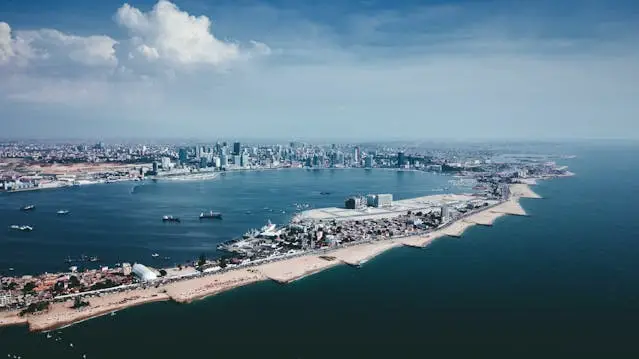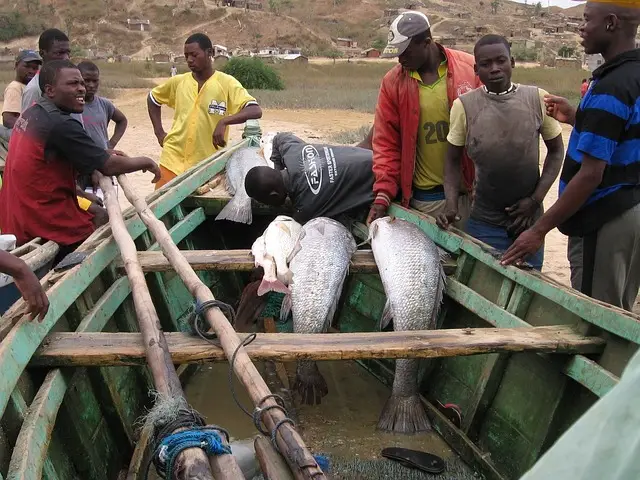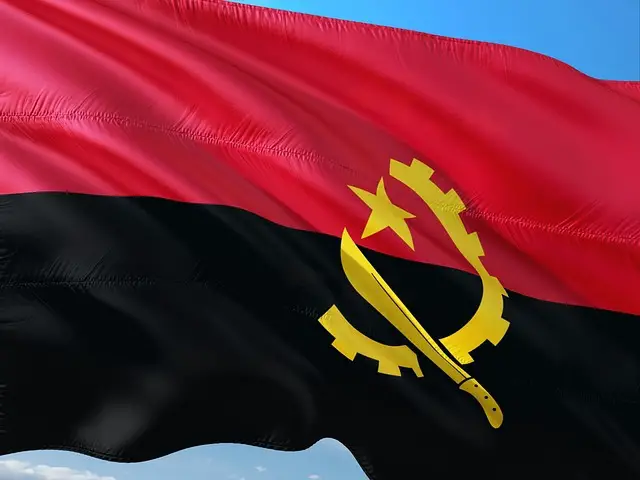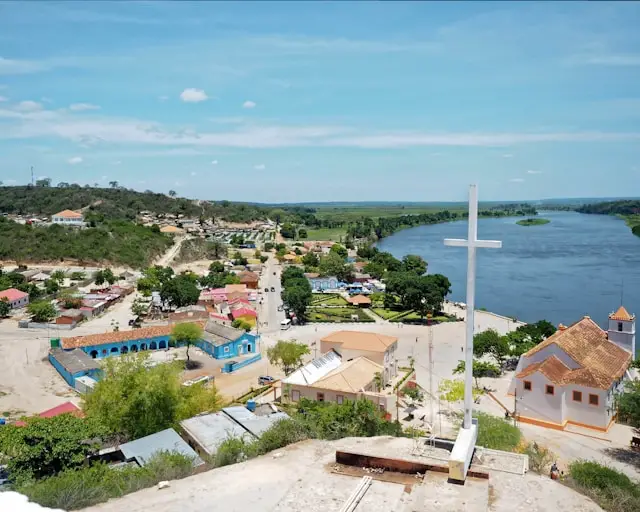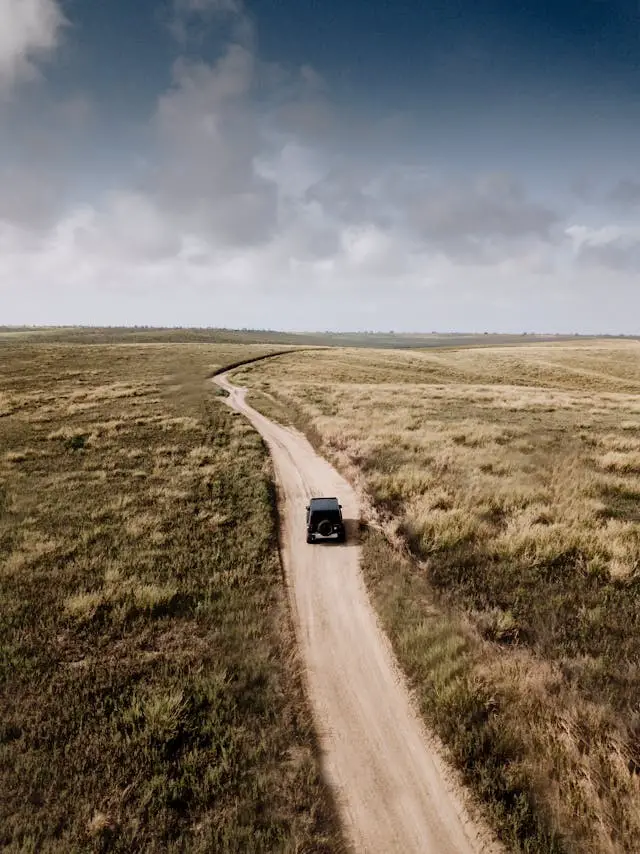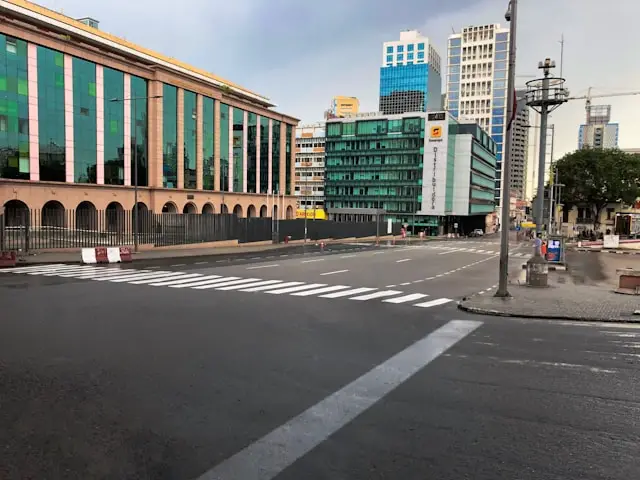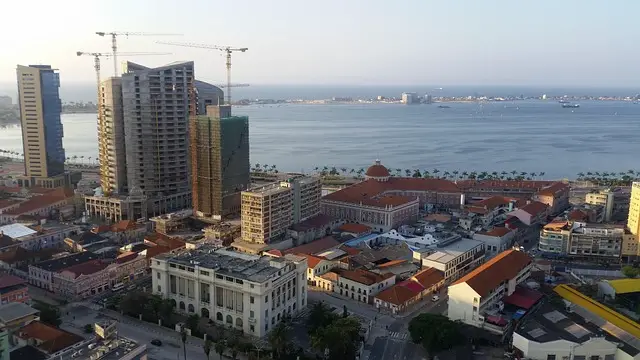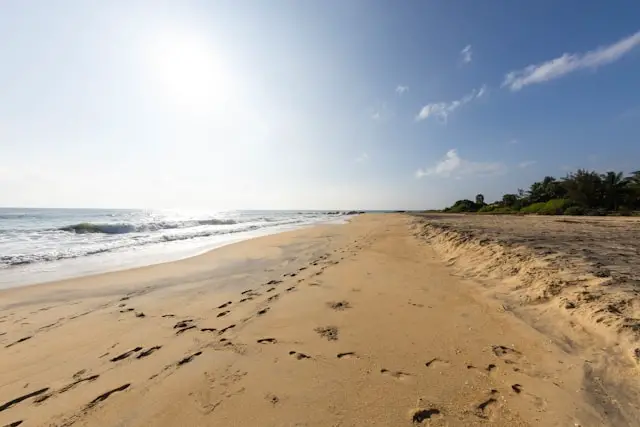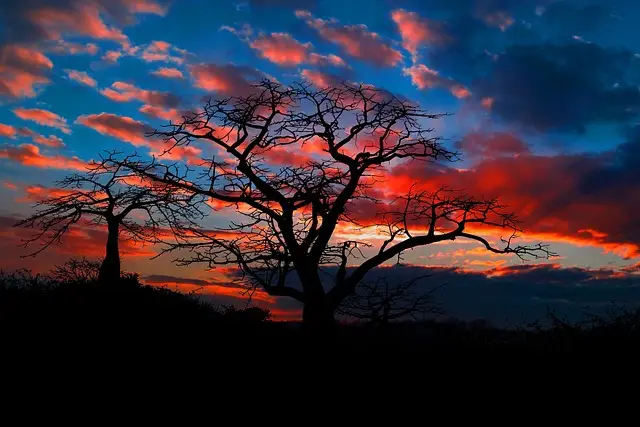Angola is an off-the-beaten-path destination that offers a mix of stunning natural landscapes, vibrant culture, and rich history. Nestled on the southwest coast of Africa, Angola boasts untouched beaches, vast wildlife reserves, and a fascinating blend of Portuguese and indigenous influences.
Its dynamic capital, Luanda, is a hub of history and modern energy, while the countryside offers spectacular safaris, colonial-era architecture, and breathtaking coastal escapes. Whether you’re exploring Luanda’s historic sites, relaxing on pristine Atlantic beaches, or adventuring through national parks, Angola provides an exciting and enriching experience for families.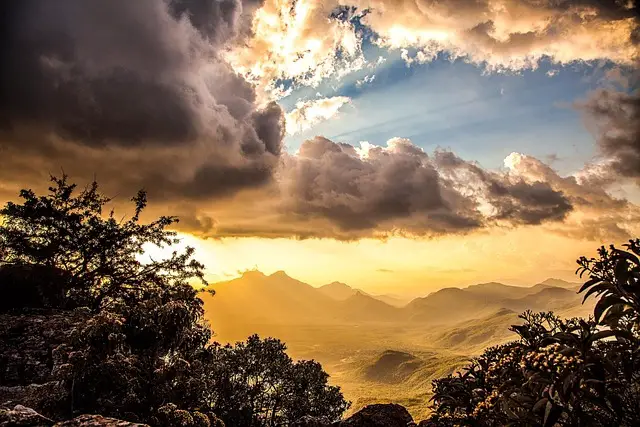
This article will include:
- Best Time to Visit Angola
- Entry Requirements
- Get to Know Angola Before You Go
- 7 Day Itinerary
- Travel Essentials
- Final Thoughts
This one-week itinerary is designed with kids in mind, blending culture, nature, and adventure to create an unforgettable journey that showcases the best of Angola while keeping travel logistics simple for families.
Best Time to Visit Angola
The ideal time to visit Angola is during the dry season (May to October) when temperatures are pleasant, rainfall is minimal, and roads are more accessible. During this period, daytime temperatures typically range between 70-85°F (21-29°C), making it comfortable for outdoor activities such as wildlife safaris, hiking, and beach visits. The dry season is also the best time to explore Angola’s national parks, as animals gather around water sources, making wildlife spotting easier. The shoulder season (April and November) is also a good option, offering milder temperatures and fewer tourists, making it easier to enjoy Angola’s attractions without the peak-season crowds. Travelers visiting during this time can still experience relatively dry conditions, but should be prepared for the occasional rain shower. In contrast, the wet season (December to March) brings heavy rainfall, high humidity, and potential travel disruptions, especially on rural roads. While this period may not be ideal for overland travel, it does bring lush green landscapes and a quieter experience for those looking to explore Angola’s cultural and urban areas.
Entry Requirements
At the time of this writing, the following requirements apply for entry. However, it’s always a good idea to check both the website of the country you are visiting and your home country’s state department website for updates, changes and warnings.
To check your requirements for entry, visit US State Department or Angola Immigration Site.
- Visa: U.S. passport holders traveling to the Republic of Angola on tourism are eligible for visa-free entry for stays of up to 30 days at a time (90 days total per calendar year). All other travelers must obtain a visa or visa pre-approval before traveling to Angola.
- Yellow Fever Vaccination: Under International Health Regulations, a certificate of yellow fever vaccination is required for all travelers over 9 months old.
Get to Know Angola Before You Go
- Establishment: Angola was a Portuguese colony for over 400 years before gaining independence on November 11, 1975. Following independence, the country experienced a 27-year civil war (1975-2002), which shaped its modern political and economic landscape.
- Crime & Safety: Angola is generally safe for travelers who exercise caution and plan ahead, particularly in urban areas like Luanda, where most visitors spend their time. Petty crime is common, especially in crowded areas, markets, and near ATMs. Travelers should be vigilant about pickpocketing and bag-snatching. Violent crime is less common for tourists, but it’s best to avoid walking at night and use private drivers or pre-arranged transport.
- Government & Politics: Angola is a unitary presidential republic, meaning the President serves as both Head of State and Government. While there have been significant political reforms in recent years, governance remains highly centralized, and political opposition is limited.
- Modern Angola: Since the end of the civil war in 2002, Angola has undergone rapid economic development, largely driven by its oil and diamond industries. However, social inequalities and infrastructure challenges persist, especially outside major cities like Luanda and Benguela.
- Legal: It is illegal to take photos of government buildings, military installations, airports or police. Doing so can result in fines, confiscation of equipment or even arrest. Angola has strict drug laws and possession of even small quantities can lead to severe penalties, including imprisonment. Carry a copy of your passport and visa at all times in case you are asked for identification; not having it may lead to delay or fine.
- Language: Portuguese is the official language of Angola and is spoken by most of the population. Indigenous languages such as Umbundu, Kimbundu, and Kikongo are also spoken in different regions. English is not widely spoken, though some people in major cities and tourist areas may understand basic English. French is more commonly understood due to Angola’s proximity to Francophone countries. Travelers who don’t speak Portuguese may find it challenging to communicate in rural areas. Learning a few key phrases or using a translation app can be very helpful. Hiring an English-speaking guide is recommended for smoother travel.
- Culture: Although same-sex relationships were decriminalized in 2019, in this conservative society public displays of affection regardless of orientation may draw unwanted attention. Outside of urban centers, modest dress and respectful conduct are appreciated. Avoid public drunkenness, loud or confrontational behavior, and discussions of politics or religion in public spaces.
- Customs & Etiquette: Respect for elders and general politeness is highly values.
- Flights: Quatro de Fevereiro International Airport (LAD) in Luanda serves as Angola’s main international airport, connecting the country to various global destinations. There are no direct flights from the U.S. to Angola. Travelers typically connect through European or African hubs. Common layover cities include Lisbon, Paris, Frankfurt, Istanbul, and Addis Ababa.
- Health & Medical: Medical services are limited outside Luanda. In case of emergency, evacuation may be necessary, so travel insurance with medical evacuation coverage is strongly advised. Carrying a basic first aid kit and any necessary prescription medications is recommended. The CDC and WHO recommend vaccines for Hepatitis A & B, Typhoid, and Rabies (for extended stays or remote travel). Angola has a high risk of malaria, especially in rural areas and during the wet season. Anti-malarial medication is strongly advised—consult with a travel doctor before your trip. Dengue Fever is present, so travelers should use mosquito repellent and wear long sleeves. Tap water is not safe to drink; stick to bottled or filtered water.
- Family, Parenting & Children: Family is the cornerstone of social life, and strong intergenerational bonds are deeply valued. Extended families often live close together or maintain strong daily connections, and elders are treated with deep respect and authority. Angolan culture emphasizes respect, obedience, and community-mindedness in child-rearing. Parents and caregivers tend to be loving but firm, expecting children to show courtesy, contribute to household responsibilities, and uphold family honor.
- Roads & Driving: A valid U.S. driver’s license + International Driving Permit (IDP) is required to rent a car. Road conditions can be poor, with inconsistent traffic laws, limited lighting, and aggressive driving common. Self-driving is possible, but only recommended for experienced drivers. Avoid nighttime driving and use a 4WD when traveling outside major cities. Police checkpoints are frequent on roads, especially outside cities. While generally routine, some may involve requests for bribes. Remaining calm, respectful, and compliant is the best approach—avoid offering bribes
- Getting Around: Many roads outside major cities are in poor condition or unpaved, and 4WD vehicles are essential for travel to rural areas or national parks. Fuel stations are limited outside of cities, and GPS signal can be unreliable—so download maps and plan routes in advance. Public buses (especially in cities) are infrequent, overcrowded, and not recommended for travelers due to safety and reliability concerns. Shared taxis or “candongueiros” (minibuses) are common for locals but may be confusing and uncomfortable for foreigners unfamiliar with local routes or language. In major cities like Luanda and Benguela, hotel-arranged taxis or private drivers are the safest and most convenient way to get around. Be sure to negotiate taxi fares in advance as most do not use meters. App-based ride sharing services are not currently available. Due’s to Angola’s size and road conditions, domestic flights are often the most efficient way to travel long distances with TAAG Angola Airlines and Fly Angola operating routes between major cities such as Luanda, Benguela, Lubango, and Huambo. Book in advance and confirm close to departure. In specific areas like the Kwanza River, boat trips are available and can be arranged through lodges or tour operators. These are typically for leisure rather than transportation.
- Heating & Air Conditioning: Most mid- to high-end accommodations in Angola offer air conditioning, especially in cities like Luanda and Benguela, while budget lodgings may rely on fans or have no cooling system at all. Heating is rarely available or needed, even in cooler highland areas, so travelers should bring layers if visiting during Angola’s winter months.
- Religion: Angola is a predominantly Christian country, with the majority of the population practicing Roman Catholicism or various Protestant denominations, often blended with traditional beliefs. Religion plays an important role in daily life, and while freedom of religion is respected, visitors should be mindful of local customs and modest behavior, especially in rural or conservative areas.
- Holidays: Independence Day (Nov 11) is characterized by large celebrations and possible closures. Carnival (Feb/Mar) is celebrated as a lively event with parades and music.
- Currency: The official currency is the Angolan Kwanza (AOA). USD & Euro are not widely accepted; exchange money at official bureaus. Credit card are only accepted on a limited basis and cash is preferred in most area.
- Taxes & Cost: VAT is included in most purchases. No tax-free shopping programs are available.
- Tipping & Service Charges: Tipping isn’t mandatory, but a 10% tip at restaurants is appreciated.
7 Day Itinerary
Day 1-2: Arrival & Exploring Luanda
Getting There & Transportation
- Flights to Angola: Direct flights from the U.S. are limited, but connections through Portugal (Lisbon), South Africa, or Ethiopia are common.
- Airport Transfers: Private car services or pre-arranged hotel pickups are recommended.
Top Things to Do in Luanda
- Fortaleza de São Miguel – A 16th-century Portuguese fortress with sweeping views of the city and bay.
- Ilha do Cabo (Luanda Island) – Family-friendly beaches, fresh seafood restaurants, and calm waters for swimming.
- Museu Nacional de História Natural – A great stop for kids, showcasing Angola’s diverse wildlife and ecosystems.
- Marginal Walkway – A scenic waterfront promenade, ideal for an evening stroll with the family.
Consider these guided outings:
- Guided Walking Tour – This five to six hour tour includes hotel pick up and drop off. This comprehensive tour includes three of the stops above. Let your tour guide worry about the details while you take in the capital city with your family.
Family-Friendly Accommodations in Luanda
Most accommodations require more than one room for families with more than four people.
- Epic Sana Luanda – A high-end hotel with an indoor and outdoor pool and spacious family suites. Rooms for a maximum of four people.
- Palmeira Suites – In the heart of vibrant Luanda, discover a luxurious oasis offering refined accommodations, exquisite dining, and unparalleled views.
- RK Suites Hotel – Ideal for a short stay, this hotel offers airport transfer and spacious accommodations.
Dining & Food Safety Tips
- Chill Out – Family-friendly beachfront restaurant serving fresh seafood and grilled meats.
- Cafe Del Mar – Beachfront restaurant with over twenty years of experience providing a relaxed atmosphere with delicious Angolan-Portuguese fusion dishes.
If spending time in the city isn’t your preference, consider an overnight guided and all-inclusive tour to Kalandula Falls!
Day 3-4: Benguela & Lobito – Coastal Adventure
This portion of the trip can take in the beautiful coast and unhurried, peaceful beaches of Angola. Alternatively if you would like to mix in further history, consider a journey with Rovos Rail. They offer a variety of journeys and lengths including one that features Lobito.
Getting There
- Flight Option: A 1-hour domestic flight from Luanda to Benguela.
- Driving Option: A 7-8 hour road trip (requires a 4WD for safety and comfort).
Things to Do in Benguela & Lobito
- Praia Morena – A peaceful family-friendly beach with golden sand.
- Catumbela Bridge – A stunning colonial-era bridge with great photo opportunities. This bridge is also called Fourth of April Bridge to recognize the end of the Angolan civil war in 2002.
- Baía Azul – A must-visit turquoise water beach, perfect for snorkeling and swimming.
Family-Friendly Accommodations in Benguela
- Aparthotel Mil Cidades – Spacious family apartments with a pool. This is well rated and recommended hotel in the area. See the details in the below video.
For indvidiual rental accommodation suggestions, visit the local tourism site.
Dining Recommendations
- Alfa Beach Bar– A family-friendly beachfront spot with space for children to enjoy and parents to relax.
- Batuk– A beachfront restaurant with fresh seafood, vegetarian-friendly and pasta dishes with sunset views.
Day 5-6: Nature & Wildlife in Kissama National Park
Getting There
A relaxed trip back to Luanda to get settled in your hotel. The next day set out on an all day trip to Kissama National Park. The YouTube video below shares the unique story of this national safari park. Civil war destroyed much of the ecosystem and the cherished species. The park was repopulated from other parts of the continent. Kissama National Park remains a more rustic safari experience that those found in other parts of Southern Africa.
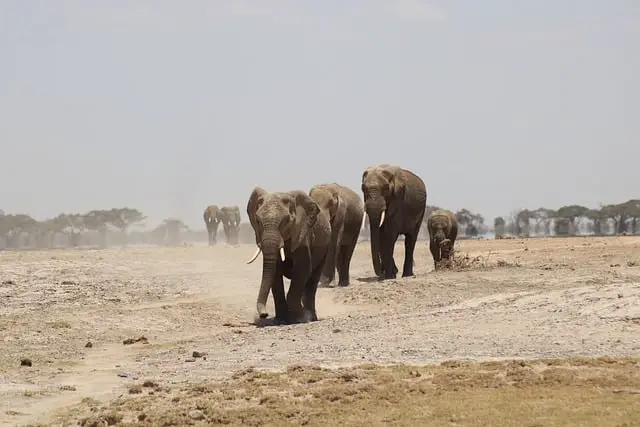
Some options to consider:
- Lu.Sona Turismo (@lu.sona_turismo) – This provider creates custom guided trips.
- Day Tour to Kissama National Park – This eight hours trip takes you to the park and back from South Luanda.
- LeLuTour – Tour provider with a variety of tour options with Angola.
- Once you have booked accommodation near Kissama, arrange for a driver and safari guide directly. See below for facilities that will be able to assist.
Things to Do in Kissama National Park
- Safari Tours – Spot elephants, giraffes, zebras, and antelopes in Angola’s most famous wildlife park.
- Kwanza River Boat Trip – Enjoy a scenic river safari where kids can see hippos and crocodiles.
- Picnic & Relaxation – Several designated picnic areas make for a perfect family outing.
Day 7: Departure from Luanda
Travel Essentials
Here are a few helpful items to pick up and pack for your family trip to Angola:
Clothing & Footwear
-
Lightweight, breathable clothing for warm, humid weather
-
Long sleeves and pants for mosquito protection in the evenings
-
Modest clothing for rural or religious areas
-
Comfortable walking shoes or hiking boots for exploring parks and trails
-
Swimsuits for beach days or river activities
-
Light jacket or sweater for cooler evenings or highland areas
-
Sun hat & sunglasses
Health & Safety Items
-
Strong insect repellent (with DEET or picaridin) for malaria prevention
-
Broad-spectrum sunscreen and lip balm with SPF – 45 SPF four pack of balms
-
Personal first-aid kit including basics like bandages, antiseptic, motion sickness meds
-
Prescription medications in original packaging, plus copies of prescriptions
-
Anti-malarial medication (consult with a travel doctor)
-
Portable water filter for remote travel – Life Straw personal water filter
Documents & Travel Essentials
-
Passports & printed e-visas (plus copies stored separately)
-
Yellow fever vaccination certificate (required for entry)
-
Travel insurance documents, including medical evacuation coverage
-
International Driving Permit (if planning to drive)
-
Printed copies of accommodation and flight confirmations
Tech, Gear & Comfort Items
-
Universal power adapter (Angola uses types C and F outlets, 220V) – Universal Adapter
-
Chargers and power bank – USB-C Power Bank
-
Unlocked phone with local SIM or international plan
-
Travel guidebook or downloaded offline maps
-
Small daypack for outings – Osprey Ultralight Pack
-
Reusable water bottles
-
Wet wipes, hand sanitizer, and tissues
-
Lightweight toys, games, or coloring supplies for downtime
-
Travel pillow and blanket for long drives or flights
- Microfiber towel in large size for use as towel or blanket
Final Thoughts
Angola is a diverse and rewarding destination for adventurous families, offering a blend of cultural immersion, wildlife safaris, and coastal relaxation. While travel logistics require planning, the experience of exploring this lesser-known African gem is truly unforgettable. Ready to plan your trip? Let us know your top picks from this itinerary!

